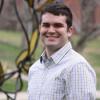By Katy Bennett, Chelsea Melchor
Obamacare is a highly debated issue seen in the news and on the floor of Congress that leaves many Americans scratching their head in confusion on just what this controversial bill is about. Come hear the two opposing cases about Obamacare 6 p.m. Wednesday, Feb. 1, in Worsham Theater. This event is free and sponsored in collaboration by the Student Activities Board and the Student Government Association.
"Obamacare: You May Love It, You May Hate It, But Do You Know Why?"will present two speakers of opposing views to the new health care law. Stephen Voss will present the case for Obamacare and Davida Isaacs will present the case against it, ultimately addressing the main question, "Is the individual mandate constitutional or not



















